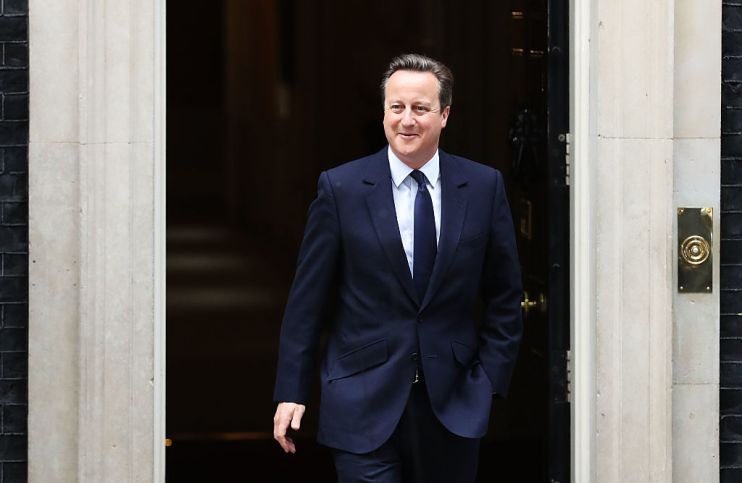David Cameron tells Sunak not to raise taxes in Budget next week

Former Prime Minister David Cameron has urged Rishi Sunak not to hike taxes in next week’s Budget amid speculation he is set to increase corporation tax to help pay off the UK’s Covid spending.
Cameron said increasing corporation tax “wouldn’t make any sense at all” before the UK’s economic recovery is further advanced and compared the crisis to World War II.
Speaking to CNN, he said: “So piling, say, tax increases on top of that before you’ve even opened up the economy wouldn’t make any sense at all.
“I think it’s been right for the government here in the UK and governments around the world to recognise this is more like a sort of wartime situation.”
Sunak is expected to outline a plan for incremental increases in corporation tax from 19 per cent to 25 per cent to help pay off the government’s Covid spending, which is expected to balloon to more than £300bn in the Budget next week after he extends emergency Covid support until summer.
This will bring the 2020-21 Budget deficit to around £400bn – the highest proportional spend since World War II.
Each extra percent of corporation tax will bring in an extra £3.3bn of government revenues.
Before the Open newsletter: Start your day with the City View podcast and key market data
Former chancellor Lord Philip Hammond joined Cameron in cautioning against tax rises in the Budget next week.
He told the BBC: “My fear is that, as a populist government, giving money away is always easier than collecting it in.
“The government will be tempted not to move quickly back to normalising the relationship between government and citizen, the balance between taxing and spending, as we move out of the crisis and into the next phase, which is dealing over the longer term with the legacy of this Covid crisis – what the economists called the scarring effect on the British economy.”
Cameron also said that some of the UK’s post-Brexit issues were not teething problems and would be here to stay.
“I think what we’re seeing now is both some early problems that need to be addressed, but some of them are the consequence of being outside of the single market,” he said.
“I hope the government can address as many of the problems and issues as possible, whether that’s problems faced by British fishermen, whether it’s small businesses finding it more difficult to export to EU countries because of the additional bureaucracy.
“I hope they can tackle as many of these problems as possible, but ultimately some of them are because we chose to leave the single market and become a third country.”